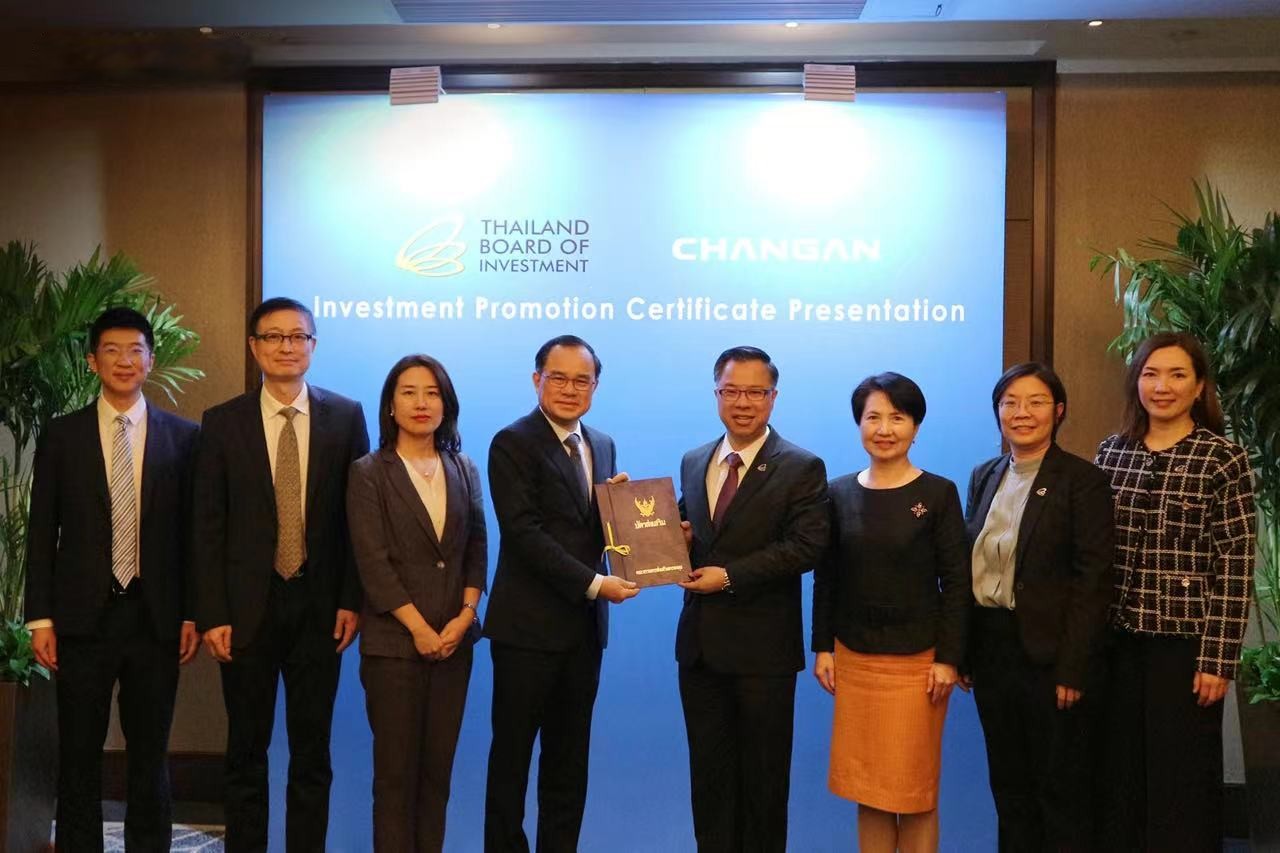 Bridging News
Bridging News
Changan Auto Invests in Thailand to Construct An EV Production Factory
Chongqing - At the recently held Belt and Road CEO Conference, Changan Auto signed an on-site agreement with the Thailand Investment Promotion Committee to invest 8.8 billion Thai Baht (about USD 241 million) in Thailand to construct an electric vehicle (EV) production factory.
The project's first phase is designed to have a production capacity of up to 100,000 vehicles.

Thai officials issued factory certificates to Changan. (Photo/Changan Auto)
Changan Auto's Thai factory is situated in the Hemaraj Eastern Seaboard Industrial Estate in Rayong Province, with expansion capacity provisions. The company plans to produce pure electric vehicles, plug-in hybrids, and extended-range hybrid vehicles locally. These models will be sold not only in Thailand but also exported to the ASEAN region, Australia, New Zealand, the UK, South Africa, and other markets.
Thailand is one of the primary automobile manufacturing countries in the ASEAN region, with numerous automakers establishing production capacity locally, serving the broader ASEAN market.
According to data from the ASEAN Automotive Federation, the ASEAN region produced 4.384 million vehicles and sold 3.425 million vehicles in 2022, marking a year-over-year increase of 24% and 23%, respectively. Thailand's automobile production and sales figures for the same year were 1.884 million and 849,000 vehicles, accounting for 43% of the ASEAN's overall production.
In recent years, Thailand has capitalized on the transformation of the automotive industry and encouraged the development of EVs. In February 2022, Thailand introduced a series of consumer incentives, offering subsidies of up to 150,000 Thai Baht (about USD 4,000) for electric vehicles.
Additional incentives for electric vehicles include a reduction in the consumption tax rate from 8% to 2%, an 80% reduction in new vehicle road tax, and exemptions from import duties on qualifying electric vehicles and components.
Simultaneously, Thailand is promoting its domestic industry. The government has stipulated that by 2024, EVs must be produced locally to enjoy tax incentives and subsidies. Thailand aims to have electric vehicles account for 30% of new vehicle production by 2030.
With market opportunities and policy incentives, several Chinese automotive companies, including SAIC Motor Group, Great Wall Motors, and BYD, have invested in Thailand and established factories.
During the conference, it was revealed that the Thailand Investment Promotion Committee had engaged in multiple discussions with Changan Auto's senior executives. They expressed appreciation for Changan's EV products and technological capabilities. The Thai government strongly supports the electric vehicle industry and offers a range of preferential policies and incentives to Chinese companies.
Establishing a production base in Thailand is part of Changan's overseas strategy. An insider of Changan's overseas brand division stated that the company plans to enter the European market in 2024 and aims to achieve an annual sales volume of 300,000 vehicles in the region.
Afterward, Changan will gradually expand into markets in America, the Middle East, Africa, and the Commonwealth of Independent States. Changan has set a target of USD 10 billion in overseas market investments and an annual sales volume of 1.2 million vehicles by 2030.
Since 2021, Chinese automobile exports have experienced rapid growth. According to data from the China Association of Automobile Manufacturers, as of the first quarter of 2023, China has officially surpassed Japan to become the world's largest automobile exporting country.
 Related Stories
Related Stories